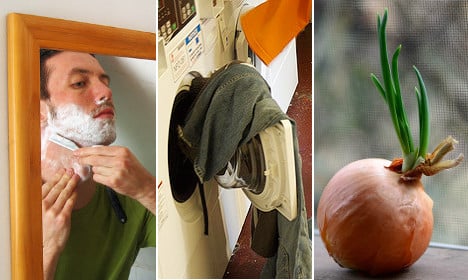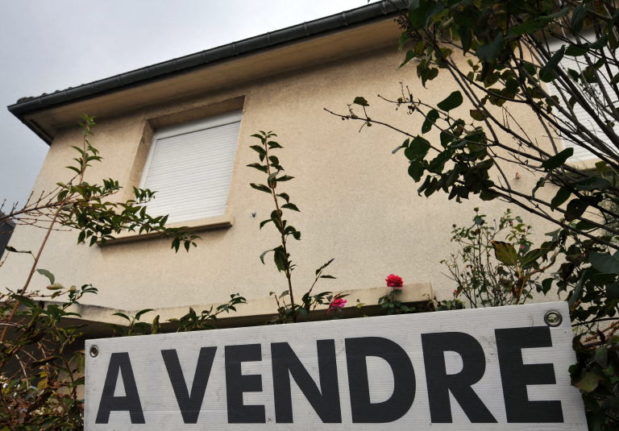If you're in France and looking to make new friends and save a bit of money on rent, then flat sharing, or colocation as the French say, could be a good option for you.
However, it doesn’t always go strictly to plan.
Of course there are the usual scenarios that you could imagine, complaints of people being too noisy, too messy, too smelly… But that certainly isn’t the worst of it.
What follows are all true stories, from Anglophones in who have at one time of anther lived in France.
Joe, who has lived in Paris for the past three years, said his first coloc (or flatmate) loved to collect and hoard “anything he could get his hands on” only to store it all in the living room.

(Having to battle your way to the door each morning is far from ideal. Photo: Grap/ WikiCommons)
“You could literally find anything in there, from fridge freezers (three in total) to car registration plates, to a wide selection of unused sex toys”.
Living with a landlord isn’t uncommon in France either and this can become problematic if the landlord decides to take on something of a parental role.
Ellie, who lived in Lyon, described how her ‘helpful’ landlord became all too comfortable a little too quickly.
“He used to go to the trouble of sorting my dirty laundry and returning it in neat little piles to my bedroom when I wasn’t there,” she said.
“When I asked him not to he told me not to worry as he didn’t mind doing it. That hadn't really been my concern.”
Another woman in Paris described how she was late to spot the warning signs that her lonely flat mate (who was 22 years her senior) and landlord was a little on the unusual side.
When he told her that all food was included in the rent, she thought she had really got lucky.
“Oysters, champagne and fine cheeses were regular features on the evening menu,” she told The Local.

(Fine cheeses and wine included in rent seem too good to be true? It probably is. Photo: Skeeze, Pixabay)
However, the novelty of being cooked elaborate meals every night soon wore off.
“He would buy far too much food every week and then get angry if I was going out and he had to throw it away,” she said.
“I'm 24. I felt like I'd moved in with a third parent but I couldn't get annoyed because in his eyes he was being generous,” she added.
Anyone who has lived in France will know that some of the eating habits of the French are a little unexpected, but the next story makes coffee-dipped soggy croissants sound perfectly normal.
Georgia, a young woman who spent a year living in France, said: “Every morning without fail my housemate used to wake up at 5am, open the curtains and tuck into her daily breakfast of an onion, which she would eat like an apple.”
Perhaps she could have tolerated this, were it not for the fact that once she had finished her own delicious breakfast, she would try to very kindly involve Georgia in the morning meal.
“She used to wake me up with a bowl of hot water and hot dogs floating in it,” she said.
And then there's student life. The Erasmus year is a prime time to live with fellow foreigners and it can be interesting to note how different people adapt in different ways to life in France.
One lucky lady reflected on her year living in a colocation with five Spaniards during her sejour in Toulouse, southern France.
“They were so low on cash that they would regularly trek to a local wholesalers and bring back entire animal carcasses on the bus,” she said.

(Imagine this but in your kitchen. Photo: AFP)
“Saturdays were then spent portioning up pigs and lambs in the miniature kitchen, following a regimented system of packaging and labeling each cut to go in the freezer.”
Another Erasmus student, British woman Rachel, said her time in northern France's Lille was spent living with a woman who had rather different nighttime habits to her own.
“She liked men. And she particularly liked making pasta dishes with those men post-coitus and eating them in bed.
“There was a lull in her active sex life for around two months which left me slightly unnerved as the only sounds I heard from her room were loud, aggressive bangs on the floor and wailing,” she said.
But fear not, there was a perfectly reasonable explanation.
“She was entering a historical flamenco singing and dancing competition in Spain, and had taken some time off from her social life to focus on training,” the Brit said.
So, the next time you feel yourself complaining about your housemate, remember it could be a lot worse.
By Hattie Ditton



 Please whitelist us to continue reading.
Please whitelist us to continue reading.
Thought you’d like to correct this, unless it’s too late: ‘from Anglophones in who have at one time of anther lived in France’